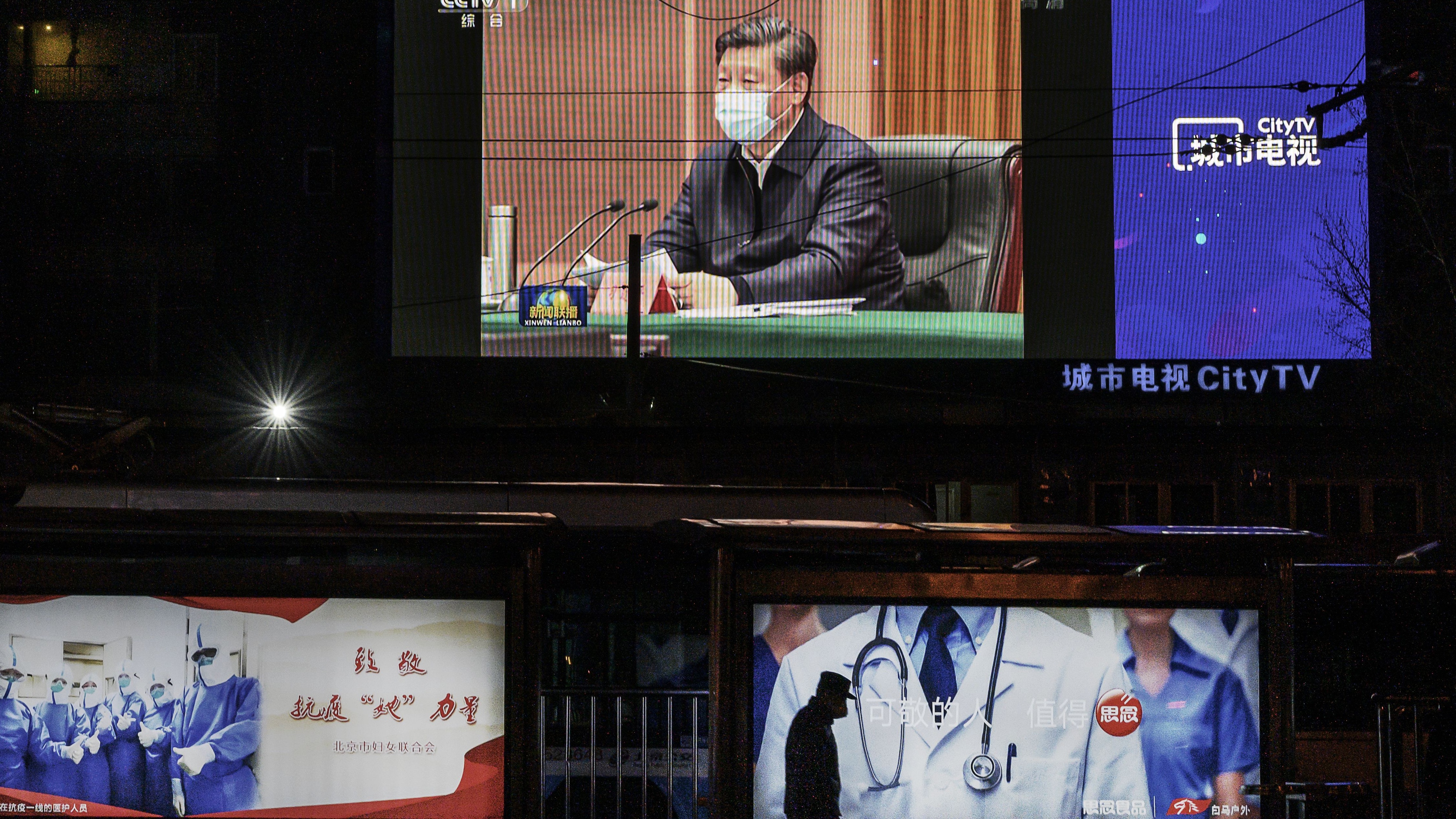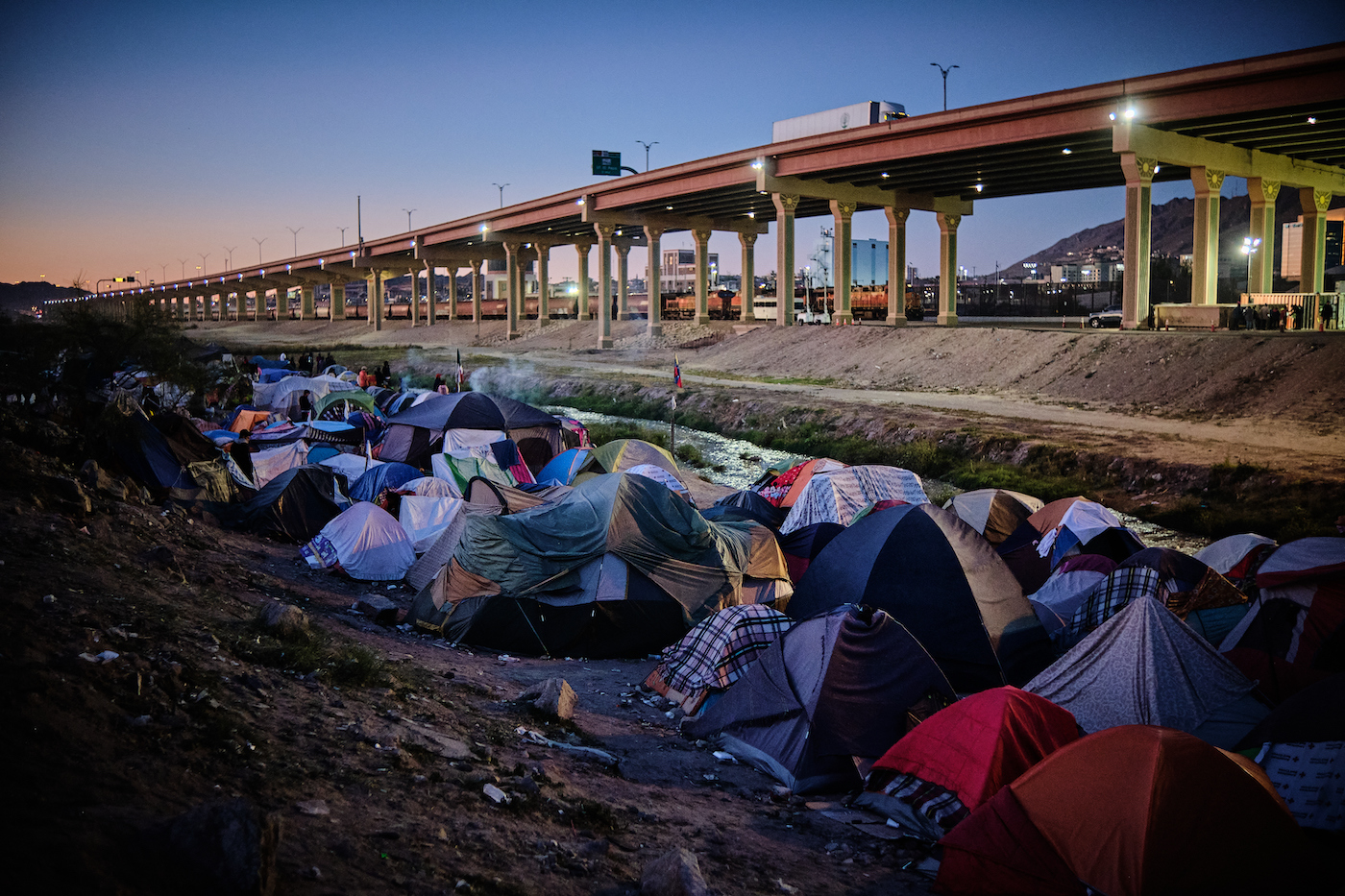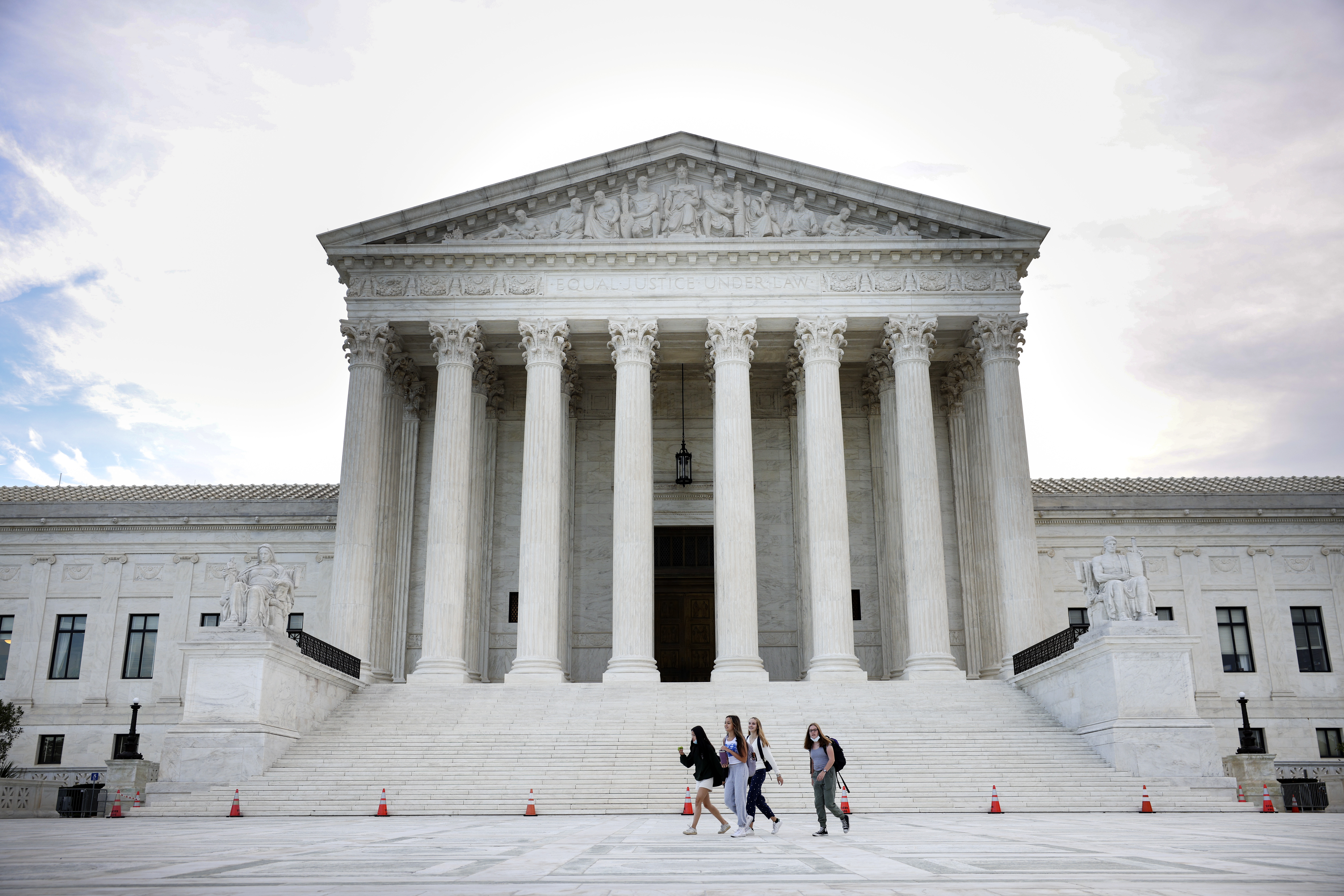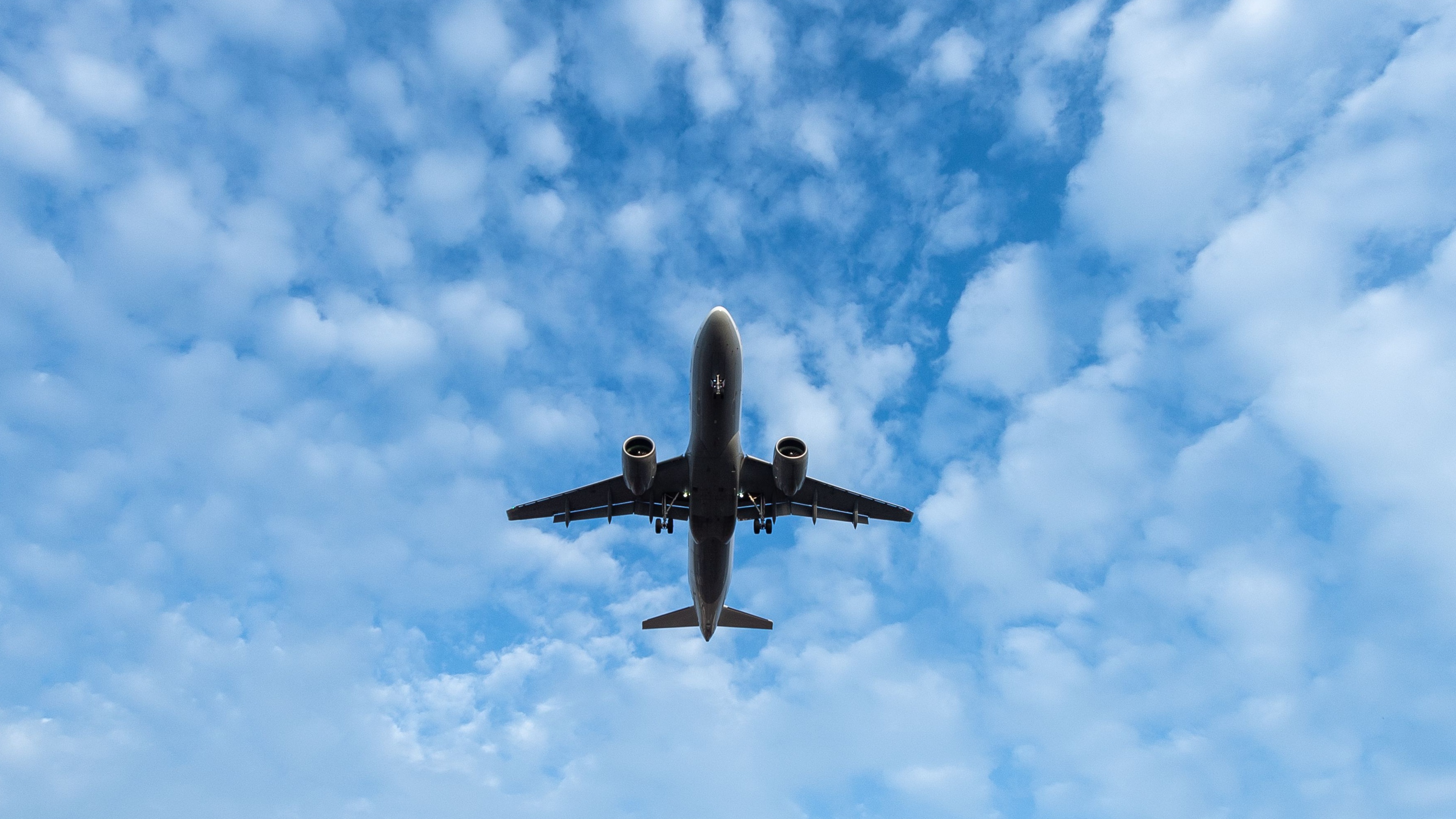Will China be sued over coronavirus?
Think-tank report suggests UK could claim £351bn in damages from Beijing

A free daily email with the biggest news stories of the day – and the best features from TheWeek.com
You are now subscribed
Your newsletter sign-up was successful
The UK has a potential claim for £351bn from the Chinese state relating to Beijing’s handling of the coronavirus crisis, according to a neoconservative think-tank.
If found to be in breach of any of a series of international treaties, China could be liable for compensation running to trillions of dollars, according a report by the Henry Jackson Society (HJS).
HJS claims China’s failures breach at least two clauses of the International Health Regulations and that action could take place in the International Court of Justice, Hong Kong courts or at the World Trade Organization.
The Week
Escape your echo chamber. Get the facts behind the news, plus analysis from multiple perspectives.

Sign up for The Week's Free Newsletters
From our morning news briefing to a weekly Good News Newsletter, get the best of The Week delivered directly to your inbox.
From our morning news briefing to a weekly Good News Newsletter, get the best of The Week delivered directly to your inbox.
What is the HJS alleging?
According to the HJS, the UK alone would have a potential claim for £351bn from the Chinese state, which it says failed to be sufficiently transparent or to contain the new coronavirus outbreak soon enough.
Using the same methodology, the think-tank suggests the US could claim £933.3bn, Canada £47.9bn and Australia £29.9bn.
In particular, the report alleges that China:
A free daily email with the biggest news stories of the day – and the best features from TheWeek.com
- Failed to share data that would have revealed evidence of human-to-human transmission for a period of up to three weeks from being aware of it.
- Provided the World Health Organization with erroneous information about the number of infections between 2 January 2020 and 11 January 2020.
- Actively promotes the widespread sale of animals that can host the virus for human consumption.
- Allowed five million people to leave Wuhan before imposing the lockdown on 23 January 2020, despite knowledge of human-to-human transmission.
These acts, the report says, violate articles six and seven of the International Health Regulations, a treaty China is legally obliged to uphold.
Matthew Henderson, director of the think-tank’s Asia Studies Centre and one of the authors of the report, said: “The Chinese Communist Party has learnt no lessons from its failure in the SARS epidemic of 2002-3. Their repeated blunders, lies and disinformation, from the start of the COVID-19 epidemic, have already had far more deadly consequences.
“This report apportions no blame to the people of China for what has happened. They are innocent victims, like the rest of us. This is the fault of the CCP.”
It should be noted that in 2017, the Charity Commission was forced to look into reports in The Sunday Times that the HJS was being paid around £10,000 a month by Japan to wage a propaganda campaign against China. However, this never developed into a formal investigation.
–––––––––––––––––––––––––––––––For a round-up of the most important stories from around the world - and a concise, refreshing and balanced take on the week’s news agenda - try The Week magazine. Start your trial subscription today –––––––––––––––––––––––––––––––
So could the UK sue China?
According to the Nikkei Asian Review, a Florida attorney has already filed a federal class-action lawsuit against the Chinese government.
In the suit, filed in the US, the attorney accuses China of a slow early response that caused “injury and incalculable harm” to people and businesses.
Chinese authorities, “acting from their own economic self-interest and looking to protect their place as a superpower, failed to report the outbreak as quickly as they could have”, the lawsuit said.
Other similar actions were also filed in Texas and Nevada, and sought billions of dollars in damages.
However, writing on Bloomberg, Stephen Carter, professor of law at Yale University, writes that “nation-states are immune from such lawsuits”.
“If you want to argue that the government of China has behaved irresponsibly… you’ll get no argument from me,” Carter writes. “Legal liability, however, is another matter. The government of China is protected by the doctrine of sovereign immunity, and the regime’s undoubted misconduct does not constitute sufficient grounds for a waiver.”
Carter notes that “sovereign immunity” is essentially a “peace treaty” in which countries acknowledge that “we will not allow our people to sue you if you will not allow your people to sue us”.
In 1894, Carter explains, a British court cemented sovereign immunity when it said that “even if a foreign ruler moves into one’s country, takes on an assumed name and conceals his true position, and enters into a contract, a lawsuit against him for breach is still barred”.
Chimene Keitner, professor of international law at UC Hastings College of the Law in San Francisco, echoes Carter’s warning, writing on US legal opinion site JustSecurity.org: “Claims against China will be dismissed on sovereign immunity grounds, among other likely bases for dismissal.”
Previous examples of individuals claiming international immunity include former Zimbabwean president Robert Mugabe. In 2004, an application for a warrant to arrest and extradite Mugabe on torture charges was rejected by a British court, after his defence claimed he had absolute immunity to prosecution as a head of state.
Carter also points to an example of a boy allegedly killed by a malfunctioning hunting rifle made by a company owned by the Chinese government. When the boy’s family attempted to sue the rifle manufacturer, “the defendant did not bother offering a response in court”, Carter writes.
“Instead, the company just sent the lawsuit documents back to the plaintiff, and the company was held to be immune.”
And, as Keitner notes: “Casting blame exclusively on China has also fuelled xenophobia and racism against individuals of Asian descent.”
-
 The Olympic timekeepers keeping the Games on track
The Olympic timekeepers keeping the Games on trackUnder the Radar Swiss watchmaking giant Omega has been at the finish line of every Olympic Games for nearly 100 years
-
 Will increasing tensions with Iran boil over into war?
Will increasing tensions with Iran boil over into war?Today’s Big Question President Donald Trump has recently been threatening the country
-
 Corruption: The spy sheikh and the president
Corruption: The spy sheikh and the presidentFeature Trump is at the center of another scandal
-
 Captain Tom: a tarnished legacy
Captain Tom: a tarnished legacyTalking Point Misuse of foundation funds threatens to make the Moore family a disgrace
-
 US Republicans push to keep strict Covid border laws
US Republicans push to keep strict Covid border lawsSpeed Read A judge ruled that the controversial Title 42 restrictions on asylum seekers should be scrapped
-
 How good sense fell victim to good intentions with mask mandates and speech therapy
How good sense fell victim to good intentions with mask mandates and speech therapyTalking Point
-
 Supreme Court declines to block Maine vaccine mandate for health care workers
Supreme Court declines to block Maine vaccine mandate for health care workersSpeed Read
-
 Lawyer for parents who challenged Florida mask mandate ban 'not surprised' by court's reinstatement
Lawyer for parents who challenged Florida mask mandate ban 'not surprised' by court's reinstatementSpeed Read
-
 Police struggled to ‘keep up’ with confusing Covid laws
Police struggled to ‘keep up’ with confusing Covid lawsUnder the Radar Watchdog warns ministers that regulations are passed in Parliament rather than ‘from a podium’
-
 Holiday coronavirus cancellations: what are your rights on refunds?
Holiday coronavirus cancellations: what are your rights on refunds?In Depth Which? finds UK travel operators breaking the law by refusing to pay out in 14 days
-
 Coronavirus: the most brazen lockdown breaches
Coronavirus: the most brazen lockdown breachesSpeed Read One person told police they had nipped out to ‘buy drugs’